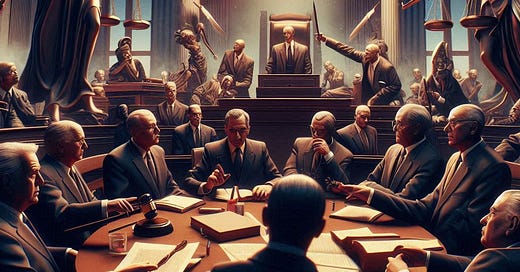Here, I explain why juries should disregard the law.*
[ *Based on: “The Duty to Disregard the Law,” Criminal Law and Philosophy 12 (2018): 1-18. ]
This paper overlaps a lot with my “A Defense of Jury Nullification”, so I will not give the whole argument. I’ll just summarize the main point, then add some more points about jury nullification that I skipped in my previous post.
1 Main Argument
Injustice is bad. You generally should not contribute to it if you can avoid it. Sometimes, convictions result in injustice. There are three main ways this happens:
a. When a person is punished for something they did not do.
b. When a person is punished for something that is not wrong.
c. When the punishment is not proportionate to the wrong.
Everyone agrees that juries should try to avoid injustice (a). But (b) and (c) are also unjust and can be equally bad. Since it’s wrong to contribute to injustice, it’s wrong to convict a person for doing something that was not wrong, or to convict a person when you know that the punishment will be grossly disproportionate. This happens often, e.g., in all drug trials.
When the law is unjust, the moral reason for not convicting the defendant is comparable to the moral reason for not helping a gang of criminals to kidnap and imprison an innocent person — i.e., it is an extremely strong reason, since the unjust harm would be very serious.
2 Objections to Nullification
As discussed in my previous post, the reasons that are most commonly given in favor of convicting in such cases are laughably weak. Without repeating the earlier discussion, here are some additional bad arguments that are given by nullification opponents…




